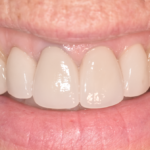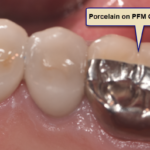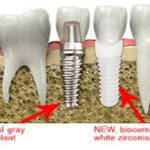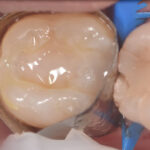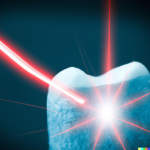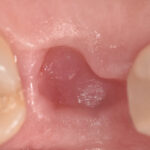I’ve heard that implants are not good for me.
Why does this concern people? Implant posts are made with titanium, a metal, and some people – even some practitioners – believe that all metals are bad for you. This is generally not true unless you have an actual allergy. Over the decades titanium has been proven to be bio-compatible and safe, with .5% or less reactivity with immune cells.
In fact titanium is considered very biocompatible and does not cause inflammation. For this reason titanium is the metal of choice when it comes to the pins necessary for shoulder, hip and knee replacements. In my opinion the cause of reactivity and inflammation is microbes around the implants and in the bone.
However there are other aspects to consider. One is galvanic response, which is a charge that can be created by dissimilar metals in the mouth. Often dental restorations contain either gold or stainless steel, which can set up an electromagnetic field with the titanium implant posts.
Such a field can be stressful to the body as a whole and contribute to an inflammatory situation.
Additionally, those with sensitivities to electromagnetic fields in general may not be well-served to have titanium implants, especially as the sheer amount of cell phone towers and power lines proliferate in the years to come. We have seen electrically sensitive patients for whom these fields are a difficult challenge.
Should this be a factor in your thinking then zirconia implants may be the better option. Zirconia implants have the hardness of metal but are a metal oxide, which causes it to be less conductive than a metal. In fact a recent study in Germany found that the zirconia implants have a better rate of integration than traditional implants.
While zirconia implants are more costly, when investing in implants it’s wise to study all the different factors.
Dr. Carey O’Rielly is a holistic dentist in San Diego, California who truly understands and practices the tenets of holistic health, both as a practitioner and in his personal life. His remarkable knowledge of the field came about through years of study and experience, initiated by his own work-related health challenges.

